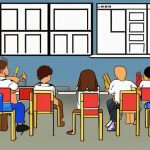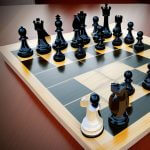8 Techniques to Strengthen Memory
Memory becomes more important as you get older, whether you are studying for your first SAT exam or closing out your doctorate degree. In education, and life, it is essential. To make the most of yours you can’t simply allow it to stagnate. You have to use active techniques to build and strengthen memory so it’ll be there for you when you need it. Here are several suggestions:

Immediately after you hear something take a few moments to make yourself “voice notes” on your smartphone or recorder. Preserving the facts and knowledge you’ve just heard in a method that you can quickly and easily revisit will not only store important details, it will also trigger additional facts or events in your subconscious that help further internalize the educational materials when later revisited.
2. Set Reminders with Notes
With so many smart (and not-so-smart) phones that employ the calendar function, there really is no excuse for failing to set a reminder on your calendar. When doing so be sure to include a few notes about the event itself. Is it a study group? If so what are you responsible for? Is it an exam? What are the materials covered and which ones are you having the most trouble with? It may take a few seconds longer, but jot notes to yourself about the reminder’s significance so that when it goes off, you’ll be reminded of the most important details.
3. Mnemonics
Mnemonics is more than just a fancy word. It’s a system of proven memory tricks that help you to store and recall key information for later use. How many of you have learned the colors–red, orange, yellow, green, blue, indigo and violet–from Mr. Roy G. Biv? How many of you recall the planet alignment from closest to furthest away from the Sun–Mercury, Venus, Earth, Mars, Jupiter, Saturn, Uranus and Neptune–as “My Very Earthly Mother Just Served Us Nachos”? How many of you handle your directional difficulties by remembering to, from the top, “Never Eat Shredded Wheat”?
Mnemonics are more than just acronyms, too. The next time someone asks you how many days April has, just remember to place a finger on your knuckle and start with January. From there every knuckle represents a month with 31 days while every valley represents a month with 30 days or less. You’ll learn right away that April has 30 days and never forget it.
4. Creating Associations
The next time you’re reading a book, remember the three types of connections: text-to-text, text-to-self and text-to-world. It doesn’t matter what type of reading you’re doing–entertainment or academic–if you try to create associations with other books, personal experiences and/or world events (both current and past), you’ll find the activity grows your memory stronger. Reading is one of the best examples, but you can create associations in any way that makes sense–and no, it doesn’t have to make sense to anyone else.
5. Drawing on Memories
The Alzheimer’s Association has instituted a “Drawing on Memories” program in many parts of the country to help patients exercise their active memories and draw connections to the past to bring about more detail than what a mind that is deteriorating should logically be able to reproduce through original artwork creations. Your mind is healthy and active so all the more reason why creating images around a central focus should be totally doable.
Try this. Time yourself for one hour with the goal of creating an image. The image can be anything you want it to be within the streamlined focus of your topic of study. Say your goal is to create a drawing that represents everything you’ve learned from your physics class. One hour. Focus on nothing but the subject. Better yet, work with a study group and discuss as you draw. At the end of the hour, share your creations with each other.

Countless studies have drawn a connection between physical exercise and mental function. The mind is a part of the body so it only stands to reason there would be some benefit. Go for a run on the treadmill. Take a swim at the pool. Pedal your favorite bike trail, or go for a hike. However you do it, building your body is building your mind.
7. Journaling
Finding time to journal can produce remarkable results in what you are able to remember because it slows the pace of your thoughts and actions and allows you the opportunity to recall each and every thing that happened to you or that you learned over a passage of time in a stress free environment that is helpful to your memory. Journaling is most effective if it is done with some regularity and in an environment where there are no other distractions. If life seems too busy, consider doing it when you go to bed each night. Your smartphone or tablet will have a variety of helpful applications to make it easier, and you won’t have to get up to turn off the light.
8. Gaming
You may think you’re wasting time playing games like Scramble, Sudoku and Words with Friends, but you would be surprised just how effective these games can be in the strengthening of your memory. Even “action” games like Captain America: Sentinel of Liberty, Skinz Golf and Galaga can offer great benefits to your memory by teaching you various controls, creating dynamic playing environments that require memory to overcome and teaching you how learning can, in reality, be a lot of fun.








